Profile
School Feeding Programme ensuring quality, transparency – Mrs. Gertrude Quashigah
With expertise in food production, processing, preservation and packaging, Mrs. Gertrude Esi Quashigah continues to set remarkable standards as one of the torchbearers in the food and beverage industry.
She had contributed her quota and excelled as founder and manager of a successful family business for about two decades and is determined to do more as the leader of the Ghana National School Feeding Programme (GNSFP).
The appointment of Mrs. Quashigah as National Coordinator of the GNSFP in 2017 made her the first female National Coordinator of the programme.
Although the programme which seeks to provide children in public primary schools with one hot meal every school day has recorded some successes, Mrs. Quashigah says she would resolve existing challenges and transform the programme to provide the best to beneficiaries.
In a recent interaction with The Spectator, she touched on aspects of her life and career, indicating a clear plan of maintaining quality and transparency under her leadership.
Background
Mrs. Quashigah is the Founder and Chief Executive Officer of Ambar Quality Foods Limited.
Born February 1, 1960, at Dzelukope in the Keta Municipality of the Volta Region, she was married to the late Major Courage E. K. Quashigah, a former Minister of Health and Agriculture in the Kufour administration.
She attended Dzelukope Roman Catholic School before proceeding to Keta Secondary School where she studied Literature in English, Food Science and Nutrition.
Prior to settling on her food production and packaging business, she took up other professional courses in food production and management at different institutions, including the National Vocational Training Institute (NVTI), Empretec Ghana, Pegados Cakes & Pastries Catering School, among others.
Experience
The 61-year-old is also the Founder and Executive Director of Healthy Living Foundation and once worked with Unilever and Nestle Ghana Limited as a distributor.
She had provided quality catering and auxiliary services at events hosted by private and public institutions in the country. As an advocate of healthy living, she had trained women in the food industry on Effective Management and Hygienic Handling of Food while managing her own business.
These and other track record, she believes, have provided a solid foundation for bringing the needed transformation and innovation to her current position as Head of the School Feeding Programme.
“I believe in managerial ethics and working hard to serve my country with purpose. My vision is to enhance the school feeding programme and I am working hard to continue the legacy of a principled man who had diligently served his country in all aspects of his life,” she noted.
Operations
Touching on some progress and achievements, the National Coordinator said that the GNSFP continued to provide jobs for thousands of caterers and cooks working in over 10,000 basic schools in all 260 districts of the country and was on course to digitise its records and operations.
She said that the institution, in addition to building the capacity of personnel, was collaborating with development partners and stakeholders to ensure more transparency in key target areas.
Mrs. Quashigah admitted that the programme had, over the years, relied on manual payment systems and was, therefore, taking steps to introduce new systems that could “address about 90 per cent of the challenges of the programme.”
“There are huge numbers under the programme hence the need to police the system more effectively to enable the programme to operate satisfactorily within its limited budget,” she stressed and maintained that food, just like medicine, was essential for human survival hence the need to make essential nutrients available in every diet.
She said it was her contribution to create conducive and hygienic spaces for cooks and kitchen staff under the programme, adding that the programme had provided training to caterers on alternative sources of protein such as soya and eggs to improve the quality of food served in schools.
Leadership
Soft-spoken Mrs. Quashigah said her leadership was receptive of constructive criticism, open to new ideas, and would continue to maintain cordial relationship with stakeholders, irrespective of challenges which may arise.
She called for support from individuals, private and corporate bodies and urged the public to continue providing relevant feedback and offer productive ideas.
“The School Feeding programme supports the overall development of children of school going age and it is important that all hands are on deck to help attain the objectives of the programme.
“Our doors are opened and we will continue to work to ensure that school children are well catered for while we provide the needed support for women and introduce a new phase of the programme,” she said.
Recognition
Mrs. Quashigah had received the Ghana Star Award for Packaging Excellence and was recognised by the Ghana Association of Women Entrepreneurs for her women empowerment efforts.
She is the patron of Ghana Chefs Associations and had travelled across the country to promote made in Ghana dishes. She won gold when she led a team of Ghanaian Chefs to Info Chef Competition in South Africa in 2005.
She played a significant role during the 2008 Africa Cup of Nations in Accra, and catered for the Ghana National Supporters Union during the World Cup in South Africa and Brazil in 2010 and 2014 respectively.
Advice
As a staunch Catholic, she listens to gospel music and spends time with her children and grandchildren. She is, therefore, advising young people to continue to acquire knowledge and take up responsibility when duty calls.
By Ernest Nutsugah
Profile
Edwina Anokye-Bempah Redefining Trust in Ghana’s Real Estate Landscape
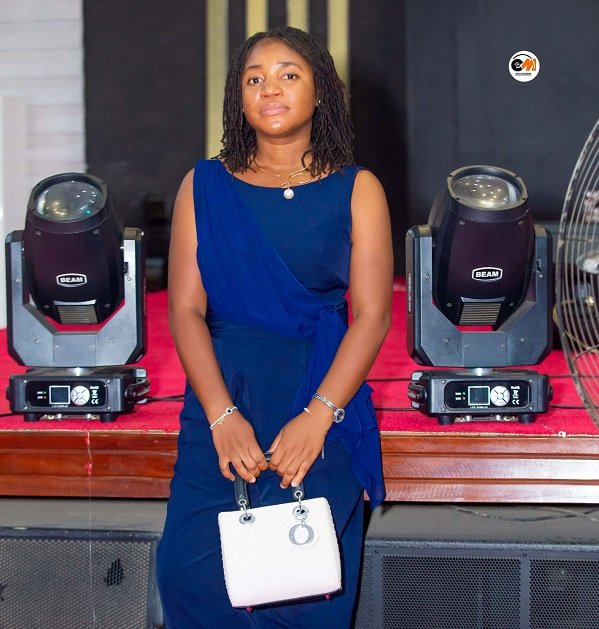
Every morning begins the same way for Edwina Anokye-Bempah, with quiet devotion. It is her grounding ritual, a moment of reflection and gratitude before she steps into the dynamic, often unpredictable world of real estate brokerage.
By the time she arrives at the office, she has already set the tone for her day. She reviews the previous day’s tasks, checks what was accomplished and what still needs attention, and then drafts a new to-do list. For her, success is rooted in deliberate planning, discipline, and the commitment to follow through.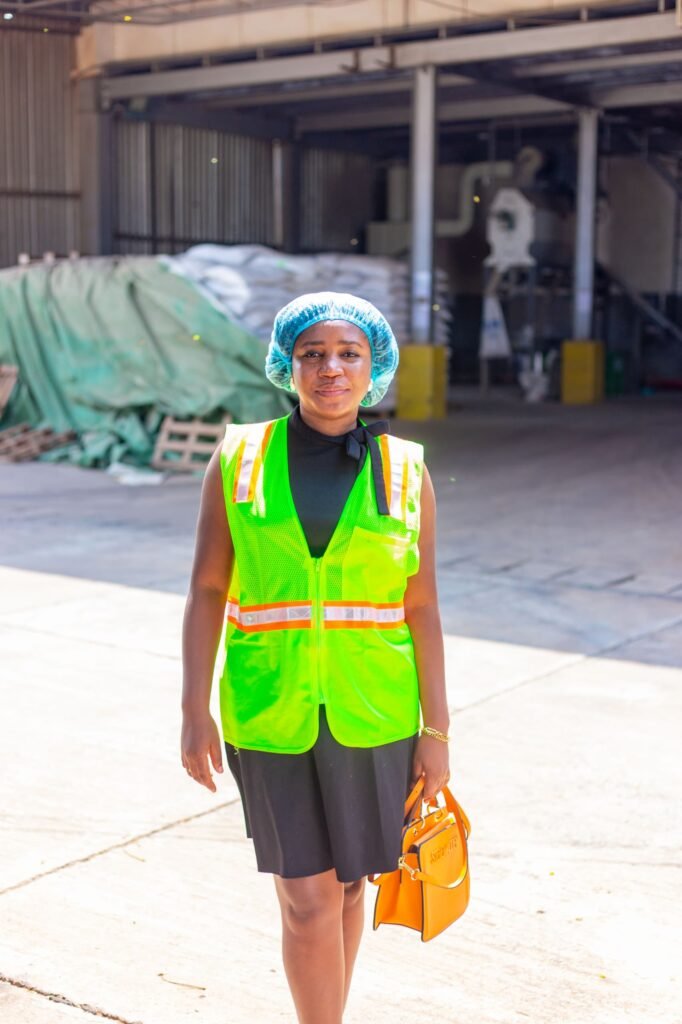
Today, Edwina stands out as one of Ghana’s promising real estate brokers, but she is also clear about the distinctions within her field. While many people casually use the term ‘realtor,’ she is quick to explain that only professionals registered with the National Association of Realtors can claim that title.
“Since I am not registered with the association, I am a real estate broker,” she says. It is a role she embraces wholeheartedly, facilitating transactions, connecting buyers and sellers, and ensuring clarity and integrity at every step.
Her journey into the industry took shape at MeQasa, an online platform dedicated solely to real estate. The platform exposed her to developers, agents, and the complexities of property transactions. She worked closely with developers and observed one recurring problem: clients often complained about agents who failed to respond, follow up, or provide accurate information.
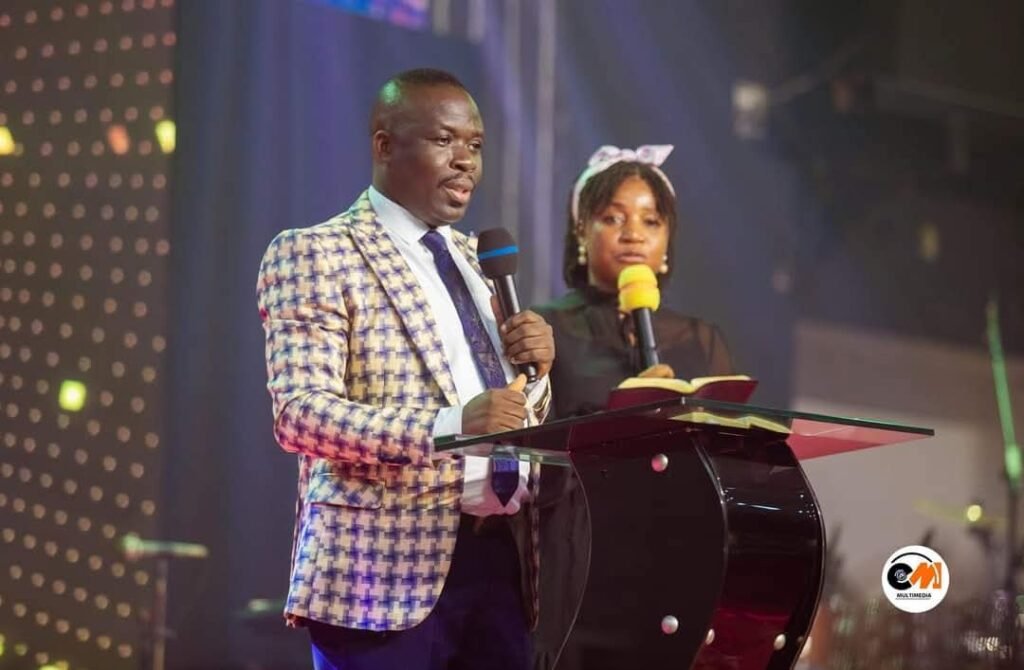
With her background in sales and marketing, Edwina felt naturally drawn to the field. It was an industry where she believed she could make a meaningful, positive impact. Real estate, she came to learn, is far more than brick and mortar. It is about helping people secure one of the most important investments of their lives. This understanding shapes every decision she makes.
One of the most challenging tasks in her work is qualifying clients.
“A serious buyer must be willing, ready and able,” she explains. When one of these three qualities is missing, the transaction is likely to stall or collapse entirely.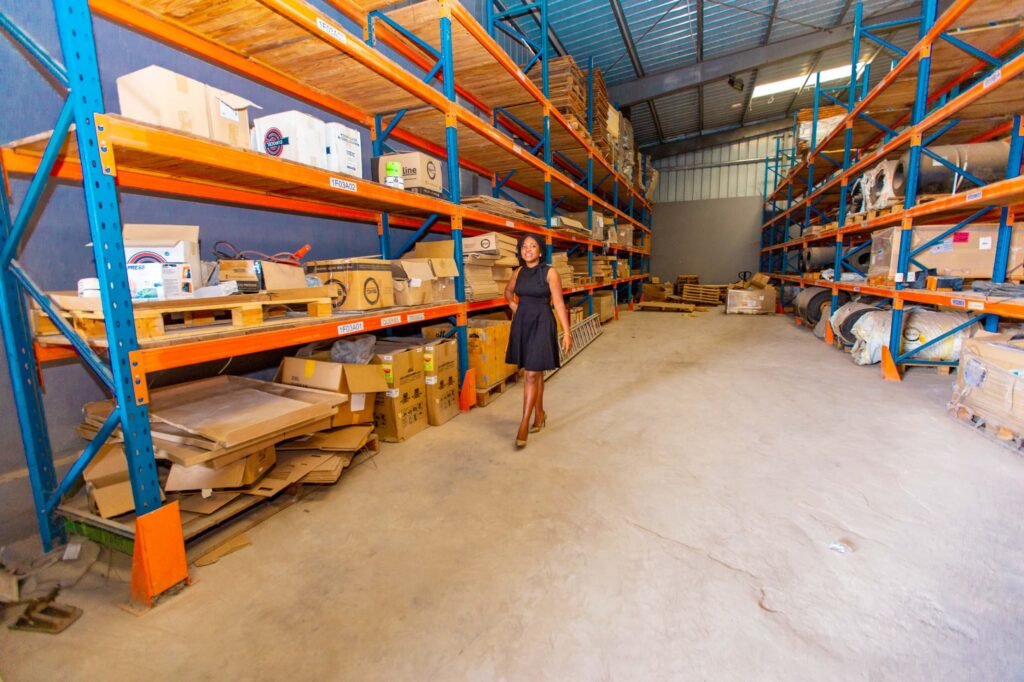
On the seller’s side, due diligence is equally critical. Ownership disputes, land fraud, and unclear documentation remain some of the biggest risks in Ghana’s real estate sector.
Edwina understands the weight of the responsibility she carries. “The money involved is huge. These are people’s lifetime savings. Most people buy one home or maybe two in their entire lives. You cannot afford to make a mistake.”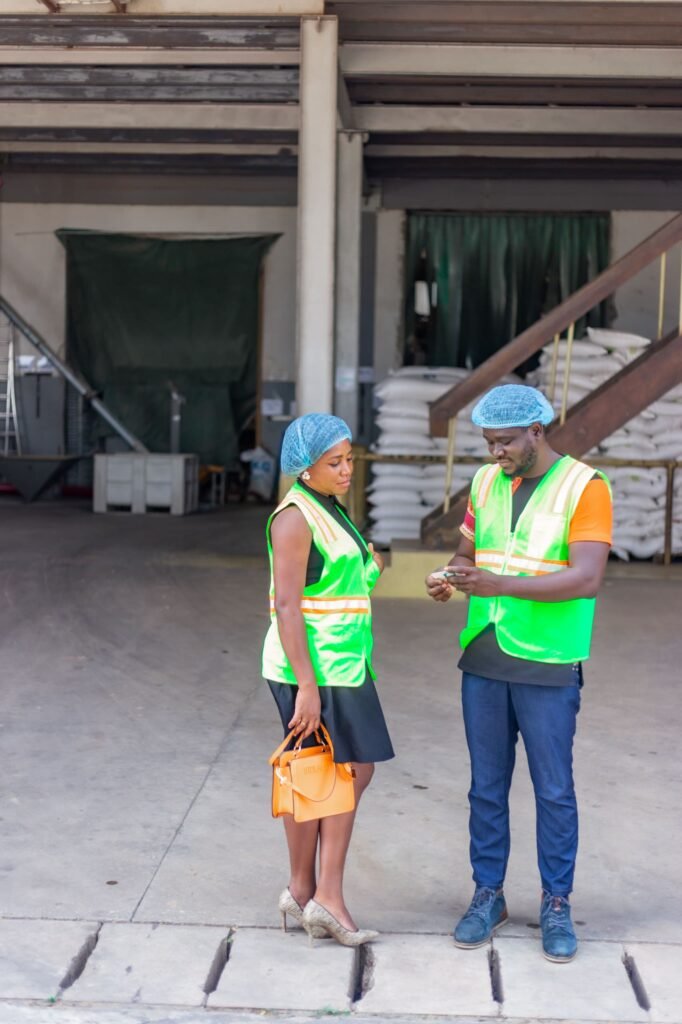
Working in what many describe as a male-dominated field has never intimidated her. With an MBA in Marketing and extensive experience in sales roles including a stint as an Account Manager in an advertising agency, she has grown comfortable handling clients, negotiating deals, and presenting herself with confidence.
“My gender has never discouraged me,” she says. “What matters is hard work and ensuring that the client’s needs were met.”
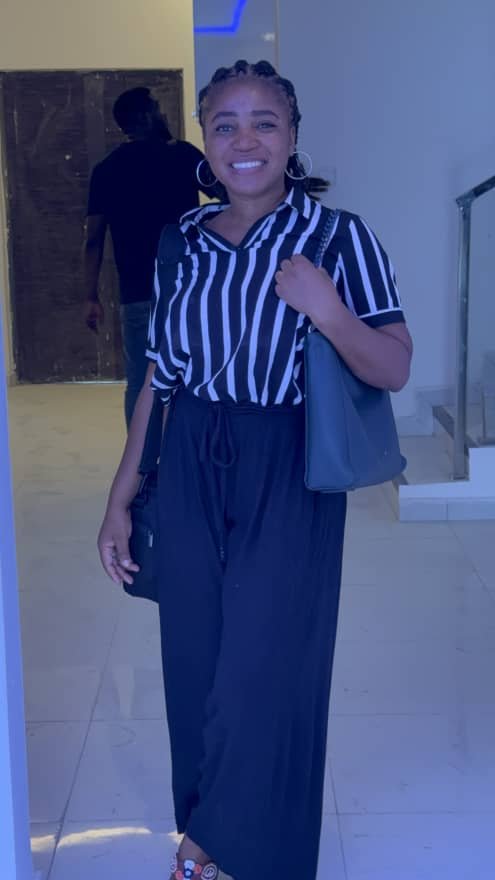
The only occasional challenge, she admits, was maintaining professional boundaries when some men attempt to be overly familiar. Her solution is simple: stay professional and do not over-familiarise yourself with clients.
Her educational journey started in Kumasi, followed by Yaa Asantewaa Girls’ Senior High School, where she studied Agricultural Science. She continued the same at the University of Ghana before pursuing her master’s degree. After university, she worked on her uncle’s poultry farm before moving into advertising. Later, her role at MeQasa finally opened the door to the career she had long been unknowingly preparing for.
Over the years, Edwina has built a reputation not only for competence but also for care. She recalls one client in particular, an older man relocating to Ghana with no family in the country. After helping him secure two homes, she became the closest person he could rely on. One evening at around 8 p.m., he called to say he felt unwell. Without hesitation, she drove to his home and rushed him to the hospital. Doctors later told her that any delay could have been fatal.
For Edwina, that moment affirmed that the job goes far beyond selling property. “It doesn’t end with the sale,” she says. “You have to look out for people.”
Her influence also extends to younger people observing her journey. She is known for her tenacity, her refusal to give up on clients or tasks, and her resilience in the face of challenges. Those who work around her learn to push forward regardless of setbacks.
“If a deal doesn’t go as expected, you don’t look back. You find a way.”
Beyond real estate, Edwina serves as an interpreter in her church, a role that dramatically boosted her confidence. What began with trembling legs has evolved into a boldness that reflects in her public speaking and client interactions. She credits her growth to God, her senior pastor, her mother, siblings, friends, and her dedicated team — “an amazing circle,” she calls them.
Today, she is also a partner in a showroom business dealing in vanity units, sanitary wares, and tiles, an extension of her real estate insight and experience.
For young people aspiring to join the industry, her advice is clear: “Learn the industry beyond selling. Understand transactions, build strong relationships, and always do your due diligence.”
For Edwina Anokye-Bempah, real estate is more than business; it is trust, service, and impact, one client at a time.
By Esinam Jemima Kuatsinu
Join our WhatsApp Channel now!
https://whatsapp.com/channel/0029VbBElzjInlqHhl1aTU27
Profile
How a Collapsed Dream Birthed Another: Daniel Debrah’s Music Journey

From the age of five, Daniel Nana Kwesi Kakra Debrah has lived a life surrounded by rhythm, harmony, and the quiet pulse of music. Growing up in a home where instruments filled corners and rehearsals were as normal as conversation, Daniel’s first teachers were not in formal classrooms—they were the sounds, movements, and discipline he absorbed from his father, a committed church musician.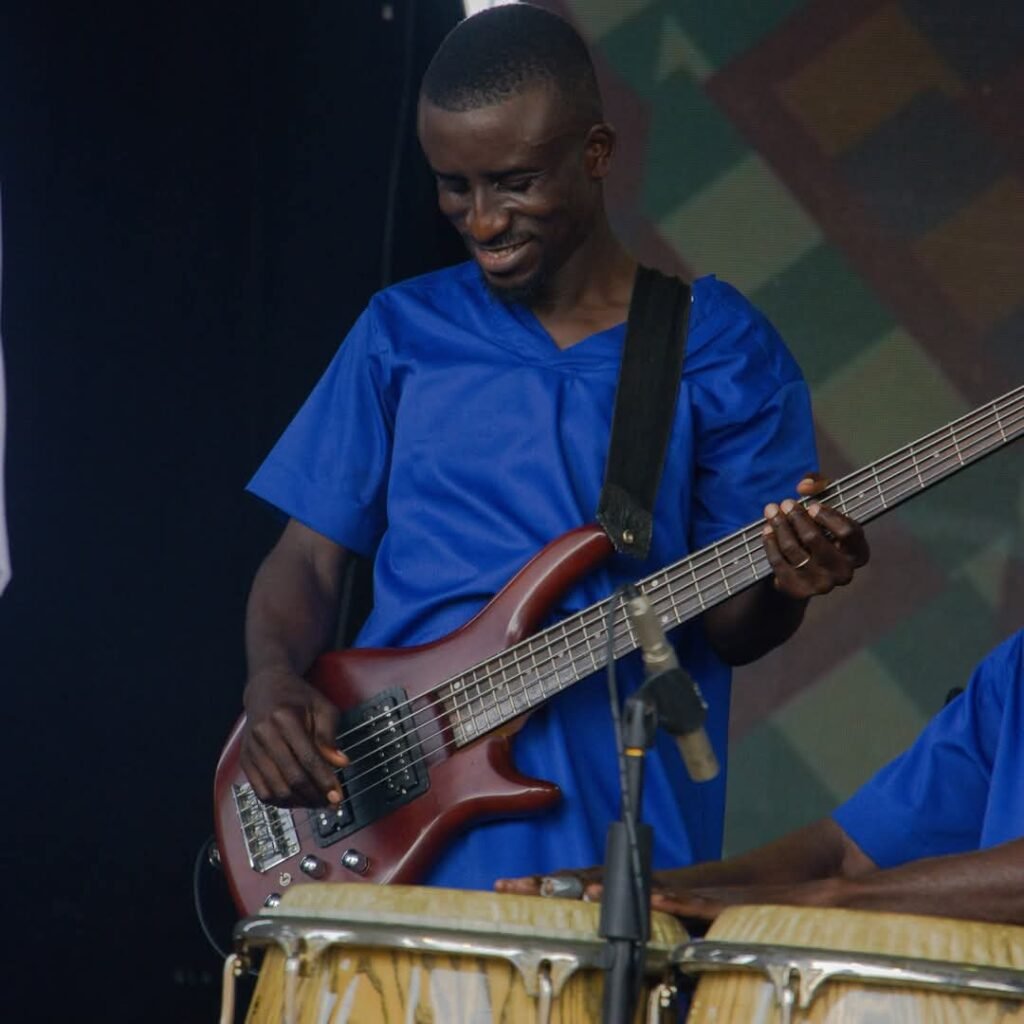
Ironically, music was not Daniel’s first dream. Like many young boys, he once hoped to become a professional footballer. But an injury from a school match left him unable to walk for three months, forcing him to retire that ambition. What seemed like a tragedy at the time became the turning point that aligned him with the path he was always meant to follow.
Daniel’s earliest musical expression began in church. As a boy in Sunday School, he eagerly ‘pounded’ the drums, quickly becoming known as the child who never missed an opportunity to play. Even in Senior High School (SHS), although many of his classmates were unaware of his talent, he continued practising quietly until completing school in 2005.
After SHS, Daniel joined a church music class with the intention of growing as a drummer, but one moment changed everything. Watching a bass guitarist perform stirred something in him. Drawn to the deep, steady tones of the bass, he persuaded a friend to teach him the basics. With no instrument of his own, Daniel practised at home using a broken guitar for more than eight months.
Then destiny intervened. The church’s lead bassist was suddenly suspended, and Daniel stepped in voluntarily during an evening service. That temporary voluntary act became permanent as he was asked by the then Music Director to fill in the gap. From that point, he embraced the bass guitar fully—a decision that defined the rest of his life.
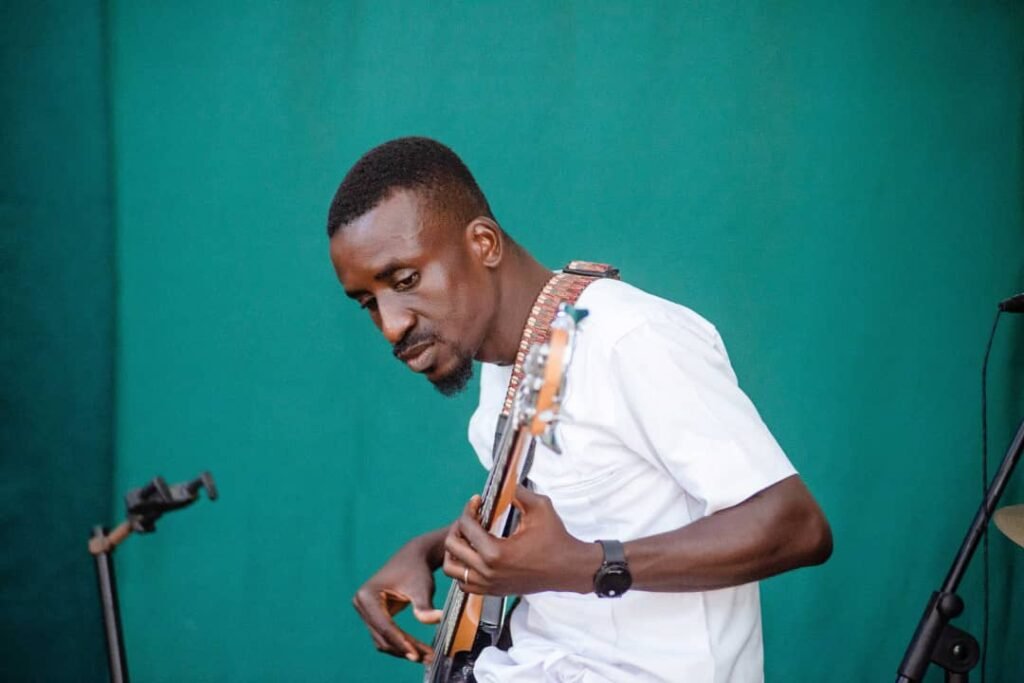
Around 2006, Daniel made a life-changing decision to take his craft seriously. He began practising for hours on end, sometimes up to eight hours a day, often without food, locked away from family and friends, perfecting techniques and expanding his creativity. While others assumed he was outdoors socialising, Daniel was indoors sharpening his gift.
His breakthrough came in 2007 when he performed in the TV3 Bands Alive competition. The exposure, applause, and feedback confirmed his dream: “music was not just a passion; it was his calling,” he said.
With time, Daniel moved confidently into the professional space. He performed at studio sessions, live concerts, weddings, church events, and high-profile national programmes. His talent, discipline, and reliability earned him a reputation that continues to attract respected gospel artistes.
Today, he works closely with Daughters of Glorious Jesus, Chris Apau, and Israel Ofori, who have been of immense help to his career ministry. He also collaborates with several ministries and offers support with musical arrangements, live performances, and studio recordings.
Beyond the stage, Daniel sees himself as a mentor. Many young musicians reach out to him, some visiting in person, others calling for guidance. Whether through hands-on training or virtual coaching, he is always ready to teach. For Daniel, music is not just technique; it is character, discipline, and values. He believes a musician must carry integrity both on and off stage.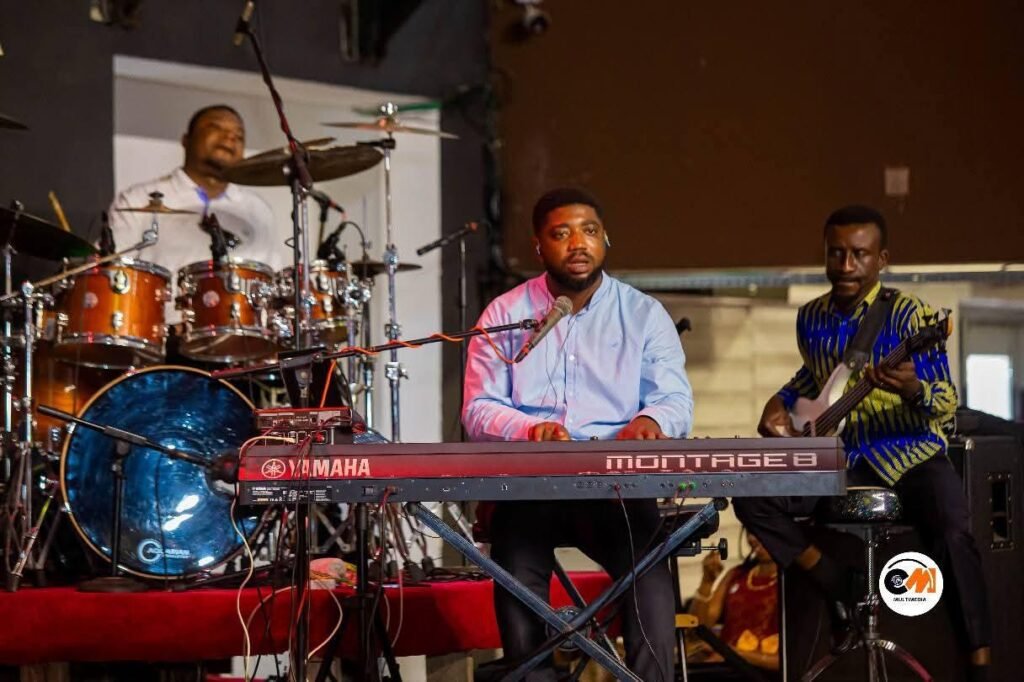
Like many musicians in Ghana, Daniel has faced challenges with delayed payments and broken agreements. These experiences have taught him to value professionalism. He now insists on part payment upfront and charges more for his services, a decision grounded in self-respect and fairness.
Daniel’s journey in music has been shaped by various individuals who have supported him at different stages of his career. He acknowledged Opoku Agyeman Sanaa, Kofi Ennin, Andrew Klu, Mr. Samuel Abbey, Mr. Samuel Sarpong Agyei, Paul Quartey, Mr. Nene Emmanuel, and Mr. Isaac Asiedu, saying that their belief in him continues to inspire his journey.
Daniel’s work is guided by his Christian faith. He sees music as ministry, not merely entertainment. Off stage, he is a devoted family man—a husband and father of two, a boy and a girl, who have also started playing musical instruments. During his leisure time, he listens to music, or plays football and action video games.
Through his acts of service and unwavering determination, Daniel continues to inspire others, proving that when passion meets integrity, ordinary men impact the lives of others.
By Esinam Jemima Kuatsinu







